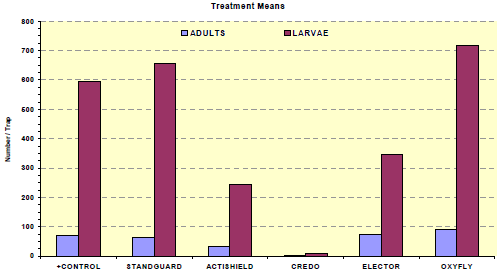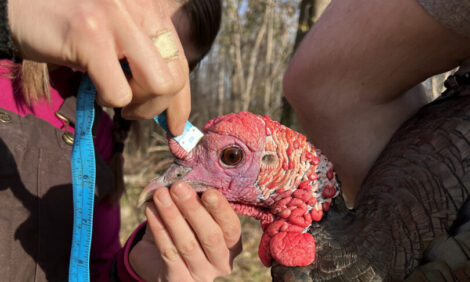



New Products for Beetle Control
A study comparing the efficacy of the products currently available in the US to control darkling beetles. Author Mike Stringham (extension entomologist at North Carolina State University) tested the products in turkey houses, and found the better products to be those that could be applied while birds were in the house. The article is published in the University's December 2008 Newsletter.The past couple of years have seen the introduction of five new insecticides for darkling beetle control. Two, Credo™ SC (Bayer) and Oxyfly® (Novartis) contain active ingredients that are familiar to the poultry industry (imidacloprid and lambda-cyhalothrin, respectively). Imidacloprid is the active in Bayer’s line of QuickBayt® products and is in a new class of insecticides called neonicotinoids. The pyrethroid lamda-cyhalothrin first appeared as Grenade®, a product used for fly and beetle control. The new product, Oxyfly, is little changed. Standguard™ (Elanco) contains gamma-cyhalothrin which is a variant of the older lambda-cyhalothrin. Actishield™ (Alpharma) adds bifenthrin to the already crowded class of pyrethroids. Finally, Elector® PSP (Elanco) contains spinosyn, an entirely new class of insecticide.
Recently, the author completed a field trial in turkey brooder houses that included all five products. The results also give some indication of how well the products can be expected to perform in broiler production as well. All treatments were applied one week prior to placement and compared to a standard treatment (Ravap®). Application rates were the highest recommended for each tested product.
In short, Credo did an excellent job of suppressing adults and larvae for an entire five-week brooder cycle. Actishield and Elector PSP did moderately well for the same period compared to the positive control (Ravap), while Standguard and Oxyfly performed no better than the control.
Translated to broiler production, Credo at the full rate can be expected to dramatically suppress beetles for at least six weeks following application, and perform reasonably well for another three weeks. Elector and Actishield provide good suppression for at least five weeks, but control diminishes rapidly thereafter. However, the more flexible labelling of Elector and Actishield permits targeted secondary treatments along walls and beneath feeders while birds are present. Properly timed, such treatments can extend beetle control by several more weeks.

"Prospects for better beetle control are looking good, but we’re not home free," writes Dr Stringham. "Proper application and careful rotation of available insecticides to manage resistance are just as important."
February 2009







